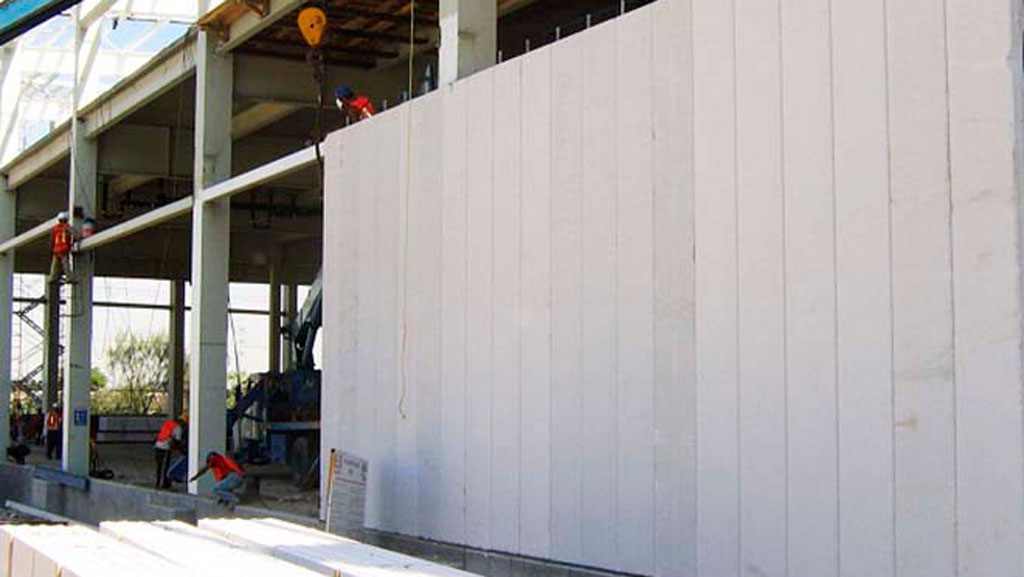The U.K. government has been shaken by the potential failure of structural products made from a building material called Reinforced Autoclaved Aerated Concrete, or RAAC.
Three reported instances of structural failures involving RAAC, including one collapse, caused the department for education to close 104 British schools, nurseries and colleges containing RAAC, just before the beginning of term.
Safety concerns over RAAC have spread beyond schools to social housing. However, those concerns may be over-stated.
“RAAC is not widespread in social housing,” Fiona MacGregor, chief executive at the Regulator of Social Housing wrote in a letter to all social housing landlords. However, she cautioned they should undertake, “proportionate mitigation and remediation plans where required; and seek suitably qualified advice where necessary.”
However, there are concerns for other government structures. Close to £700 million has already been allocated to investigate RAAC issues at hospitals operated by Britain’s National Health Service.
Elsewhere, Harrow Crown Court, a court venue northeast of London built in the 1990s, has been ordered closed pending further investigation of its structure.
In fact, since 2015, the government has funded approximately £15 billion of support for other RAAC-related works.
“RAAC is an aerated lightweight cementitious material with no coarse aggregate; the material properties and structural behaviour differs significantly from ‘traditional’ reinforced concrete,” Prof. Chris Goodier, of the University of Loughborough told International Construction.
RAAC has proven to be a difficult material to survey for structural soundness. It is also known to be less durable than concrete, with an expected life expectancy of about 30 years. It had been recognized earlier that the porous nature of the material could absorb water over time, both weakening the material and causing corrosion of the steel reinforcement within the planks.
There are safety implications if RAAC planks are not properly managed, Goodier continued. Yet he maintains it, “can still be an appropriate construction material, so long as it is properly designed, manufactured, installed and maintained. Our research has shown, however, that this is often not the case for RAAC panels constructed in the 1950s, ‘60s and ‘70s.”
It is not clear whether the RAAC products of the type giving Britain nightmares are restricted to the United Kingdom alone. There are concerns that buildings in other countries might exhibit similar vulnerabilities.
Fortunately, there is no known instance of RAAC being used in Canada.
Peter Von Sass, chairman of AAC Canada Inc., told the Daily Commercial News, although similar in concept, RAAC should not be confused with the Hebel-brand Autoclaved Aerated Concrete (AAC) products his company now distributes in Canada.
“Ours are a completely different animal,” he said.
The Hebel AAC process was refined by German construction engineer Joseph Hebel in the 1940s. Today, Hebel products are manufactured by Xella International GmbH in facilities located in Germany, Mexico and Australia, and under different brand names in other countries around the world.
“AAC Canada Inc. is the co-ordinating entity for the distribution of Mexico manufactured Hebel AAC homebuilding products throughout Canada,” the company website says. Among the many benefits promoted by AAC Canada are: high levels of thermal and sound insulation; water penetration, mould and rot resistance; light weight; and low carbon footprint.
“AAC combines insulation and structural capability in one material for walls, floors and roofs. The light weight/cellular properties make it easy to cut and shape, accept nails and screws and
allows it to be routed for electrical and plumbing conduits. Adjustments are easily made. As the AAC product is non-combustible, it will neither burn nor give off toxic fumes.”
Von Sass could only speculate what went wrong with the RAAC used in the U.K., but was quick to point out that the Hebel AAC product has approvals throughout the United States. AAC Canada is currently seeking approvals from Canadian building authorities.
Meanwhile, school parents in the U.K. are being told by the education secretary not to worry. The closures are just “precautionary measures” being taken.



If Canada has “nothing to fear over Britain’s RAAC turmoil” it is only because most of the autoclaved aerated concrete slab and deck problems in our country have already been fixed. Domtar Construction Materials (for whom I worked until 1982) sold “Siporex” as a light weight deck system for about 20 years. At the time, Domtar was Canada’s largest gypsum producer/manufacturer and a gypsum filled concrete system seemed like a nice adjunct to the rest of its product line. Well, it wasn’t … As many ICI roofing contractors and school boards especially in Ontario will tell you. And were he still alive Raymond Moriyama would have said exactly the same thing. I had dinner with him about 30 years ago, and when I confessed that I had worked for Domtar, he lit right into me. But he was right … The system failed.